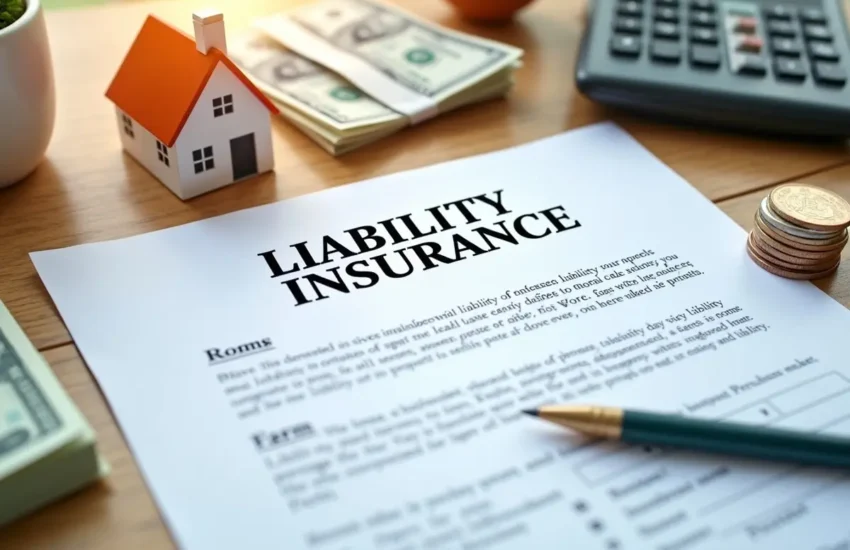What to Do When You Lose in Small Claims
You have just lost your small claims court case.
It feels pretty lousy, right? All your preparation work and evidence presentation before the judge did not result in the desired judgment.
Even after a defeat in small claims court you still have future options to consider.
You have multiple choices available to you and knowing the next steps will help you manage this difficult situation.

This guide will show you what steps to take following a small claims court loss through an analysis of the reasons behind your loss to your potential next actions.
Inside This Guide:
- Why You Might Have Lost Your Case
- What Happens Immediately After Losing
- Options When You Lose in Small Claims
- How to Appeal a Small Claims Judgment
- When You Should (And Shouldn’t) Appeal
- Dealing With Judgment Collection
- Moving Forward After a Loss
Why You Might Have Lost Your Case
Make sure you understand the specific reasons for your case loss before proceeding with any other actions. The details about why you lost your case serve as essential information for determining your subsequent actions.
Judges typically explain their decisions through spoken remarks during court proceedings or through written judgments. If you didn’t get a clear explanation, you can often find out what happens if you lose in small claims court by requesting the court’s written opinion.
People often lose in small claims court because of these factors:
- Your claim lacked adequate proof to stand up in court.
- The judge decided that the other party’s testimony was more credible
- You could have lost due to missing a legal filing deadline or failing to meet a procedural requirement.
- Your legal understanding was incorrect since the applicable principles didn’t back your argument.
Analyzing the reasons behind your loss helps determine if an appeal should be filed.
What Happens Immediately After Losing
Several things occur automatically when the court issues a ruling against your case.
- The judgment is recorded: The court clerk inputs the final judgment into the official legal record.
- Appeal period begins: You must file an appeal within a specific timeframe that usually ranges from 10 to 30 days depending on the state.
- Winner becomes “judgment creditor”: Victorious parties gain a legal right to collect the established judgment amount.
- You become “judgment debtor”: You now legally owe the judgment amount
During the 2023-2024 fiscal year California courts handled 77,461 small claims cases alone. The large numbers of cases require courts to establish standardized judgment handling procedures.
Options When You Lose in Small Claims
Multiple paths are available to you after losing a small claims court case.
1. Pay the Judgment
The most straightforward solution is to pay the amount you owe. This can be done:
- In full with a single payment
- If you negotiate with the winner you may arrange to pay what you owe through a payment plan.
- Parties can reach a settlement which allows the plaintiff to receive a reduced payment instead of the full amount in exchange for immediate payment.
2. File an Appeal
You can request a higher court to review the case if you think the judge committed a legal mistake. The possibility to appeal does not exist in every jurisdiction for every small claims case type.
3. File for Reconsideration
Several jurisdictions allow you to request that the original judge review their judgment if you present new evidence which wasn’t available at the initial hearing.
4. Motion to Vacate Judgment
Procedural issues such as improper service of process in your case can allow you to file a motion to vacate so that you can ask the court to dismiss the judgment.
5. Do Nothing (Not Recommended)
Doing nothing remains a legal possibility but carries serious consequences.
- Wage garnishment
- Bank account levies
- Liens against your property
- Damage to your credit score
Every year state courts across the nation hear millions of small claims cases which shows the frequency of these legal proceedings. Knowing your choices becomes essential after losing a case.
How to Appeal a Small Claims Judgment
The following describes the standard appeal procedure although each state may have its own distinct variations.
- File a Notice of Appeal: You need to complete the required form which you can obtain from the court clerk.
- Pay the Filing Fee: The appeal process requires payment of a fee but applicants with financial hardship may qualify for a fee waiver.
- Prepare Your Case: Many state courts treat an appeal as a completely new trial which is called “trial de novo.”
- Gather Additional Evidence: When permitted, collect new evidence to enhance your appeal case.
- Consider Legal Representation: Attorneys generally have permission to participate in appeals which differs from most small claims trials.
Remember that the appeal timeframe is strict. California courts maintain strict deadline enforcement for their caseload management while processing 74,855 small claims filings during the 2022-2023 fiscal year.
When You Should (And Shouldn’t) Appeal
Consider appealing when:
- The judge showed a clear misunderstanding or incorrect application of legal principles.
- You now possess powerful evidence which was not presented in the original trial.
- The amount of the judgment warrants the expense of pursuing an appeal.
- You possess a compelling legal basis to demonstrate how the original court decision was flawed.
You probably shouldn’t appeal when:
- The judge followed legal procedures correctly although you feel unhappy with the decision
- You lack any fresh evidence or legal arguments to bring forward.
- Filing an appeal will require spending nearly as much as the judgment value itself.
- Your main goal is to postpone your payment of the judgment.
Dealing With Judgment Collection
In case you opt not to appeal or your appeal fails you will need to take steps to satisfy the judgment. Here’s what to expect:
If You Can Pay the Judgment
Reach out to the judgment creditor to set up the payment arrangement. After making full payment you must request both a receipt and a “Satisfaction of Judgment” form from the creditor which needs to be filed with the court to demonstrate that the debt has been settled.
When immediate full payment of the judgment is not feasible you should consider negotiating a payment plan with the creditor.
- Negotiate a payment plan: Judgment creditors frequently agree to receive periodic payments of lesser amounts.
- Request a judgment debtor examination: The judgment debtor examination provides a formal venue for you to discuss your financial circumstances.
- Consider exempt assets: Some types of property and income receive protection against debt collection actions.
- Know your rights: The law regulates how creditors can collect debt and requires them to follow established legal procedures.
California small claims courts handle cases that involve monetary claims that are $12,500 or less since different states have varying limits. It is crucial to know the specific judgment limits and follow legal collection procedures for these amounts.
Moving Forward After a Loss
A courtroom defeat in a small claims case can be upsetting but it doesn’t determine your worth. Here’s how to move forward:
- Learn from the experience: Reflect on the past outcome and develop new strategies for future situations.
- Maintain good records: It is necessary to maintain documentation of all payments made toward the judgment.
- Fulfill your obligations: Paying your legal debts protects both your credit standing and personal reputation.
- Consider the relationship: Maintain professionalism when you need to preserve a relationship with the opposing party.
Wrapping It All Up
A loss in small claims court should not be seen as the end of your world. The California superior courts received around 4.8 million case filings during the fiscal year 2023-24, which means you are definitely not dealing with your situation by yourself.
You can move forward with resolving the matter by knowing your options and strategically approaching the situation within necessary deadlines. By choosing to appeal or negotiate payment terms or by paying the judgment directly you will take the necessary steps to overcome this obstacle.
Remember these key steps after losing:
- Understand why you lost
- Decide whether to appeal quickly
- Make arrangements to satisfy the judgment
- Document all payments
- Obtain a satisfaction of judgment when paid


